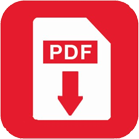This paper -Islamic Jurisprudence and the Status of Arthropods: as alternative source of protein and with regard to E120- aims to explore the scope of Arthropods consumption with respect to the various rulings of different Islamic Schools of thought.
Arthropoda being the biggest animal phylum of this planet is the fraternity of tiny living organisms. Their consumption has been a diverse subject amongst the various Islamic Schools.
Maliki sect is the only school of thought that allows the eating of non-poisonous/hazardous arthropods other than locust which is held permitted by all the schools.
After the emergence of halal food sector the question ascended to the faces of Islamic Scholars that either the food ingredients particularly E120 derived out of them would be rendered permissible or not. Even in the era where mankind has started realizing the insects as alternative sources of protein beyond the conventional food sources, the issue of their consumption becomes more relevant.
Hence, this paper aims to explore the scope of their consumption with respect to the various rulings of different Islamic Schools of thought. Furthermore, it puts forth analytical discussion with a comprehensive conclusion paving a possible course for the halal industry players to adopt the Maliki view point. Numerous halal standards and conventional food regulations have also been unfolded to depict the legal status of arthropods particularly insects in different parts of the globe.
Bibliographic Information
Title: Islamic Jurisprudence and the Status of Arthropods: as alternative source of protein and with regard to E120
Author: Sayyid Fadl al-Rahman
Published in: MOJ Food Processing & Technology, Volume 6 Issue 4 – 2018
Language: English
Length: 11 pages
 Ijtihad Network Being Wise and Faithful Muslim in the Contemporary World
Ijtihad Network Being Wise and Faithful Muslim in the Contemporary World

